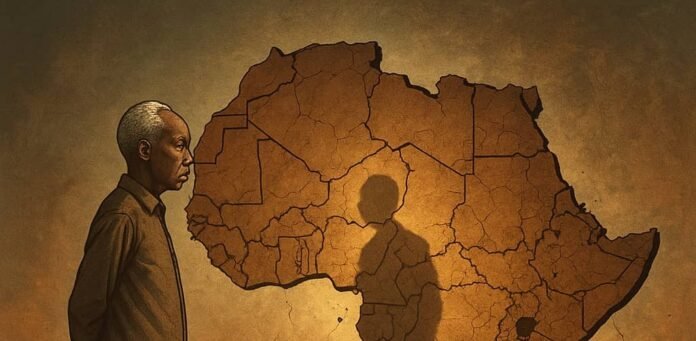By Isaac Christopher Lubogo
There was once a man who did not need a throne to be a king.
Julius Kambarage Nyerere — Mwalimu, the teacher — stood at the confluence of wisdom and conscience, a philosopher clothed in simplicity, a statesman baptized in the fire of integrity. He did not only lead Tanzania; he instructed Africa. His chalkboard was the continent; his lesson, the dignity of man.
Today, as the calendar whispers Nyerere Day, the irony cuts deep: we commemorate the man, but we have buried his message.
1. The Philosophy That Africa Betrayed
Nyerere’s socialism — Ujamaa — was not Marxism painted in African colours. It was a moral economy, a theology of shared humanity. He saw community not as an economic unit but as an ethical obligation. He once said, “We measure development not by how much we have, but by what we are becoming.”
But what have we become?
We have turned his village into a market, his solidarity into selfishness, his morality into mathematics. Today’s Africa worships GDP while starving on integrity; builds skyscrapers while collapsing on character. Nyerere’s dream was that no man should rise by stepping on another — yet our modern politics is a pyramid of crushed dreams, where the few feast on the many.
2. The Disciples Who Forgot the Master
Among Nyerere’s admirers was a young revolutionary named Yoweri Kaguta Museveni, who would later become Uganda’s longest-serving President. In the 1970s and 80s, Museveni spoke Nyerere’s language: of self-reliance, discipline, and the liberation of the African mind. Tanzania sheltered the early seeds of Uganda’s revolution; Nyerere even offered men, money, and morale to remove Idi Amin — a gesture of Pan-African brotherhood unmatched in modern politics.
But like many sons of revolution, Africa’s leaders inherited their father’s power, not his humility. They mastered Nyerere’s vocabulary, but not his virtue.
He left them the grammar of governance, but they conjugated it into greed.
Nyerere retired voluntarily after leading Tanzania for 24 years — a decision that remains an African miracle. Today, his students cling to office as though leadership were a birthright, not a duty. They build statues in his honour while dismantling the very moral architecture he erected.
3. The Death of Ideology
Nyerere’s Africa was ideological — whether you agreed or not, there was thought, conviction, and purpose.
Today’s Africa is ideological bankruptcy disguised as pragmatism.
Our politics has become an auction; our universities, factories of conformity. We no longer debate ideas; we trade insults.
The men and women who were to inherit the torch of Pan-Africanism now use it to light their cigars of self-interest. Nyerere’s Uhuru na Umoja (Freedom and Unity) has mutated into Uchumi na Upumbavu (Economy and Foolishness).
He once warned, “Without unity, there is no future for Africa.” Yet now, Africa is a continent of silos — each nation a lonely island of suspicion, each leader a demi-god worshipped by the poor he impoverishes.
4. The Teacher’s Ghost
If Nyerere were to rise today and walk through the corridors of our parliaments, what would he see?
He would see beggars in suits calling themselves ministers.
He would see public offices converted into private empires.
He would see students with degrees but no discernment, politicians with power but no principle, and preachers with pulpits but no prophecy.
He would ask, “Did I liberate you for this?”
Africa today celebrates independence anniversaries yet still imports its food, its medicine, and its meaning.
The continent that Nyerere dreamed of — self-defining, self-reliant, self-respecting — has become an appendage of the global economy, exporting raw materials and importing identity.
5. The Reckoning
To remember Nyerere without reform is blasphemy.
To quote him while living contrary to his ideals is hypocrisy.
If Africa is to resurrect the moral grandeur of Nyerere, we must re-Africanize our consciousness — not through slogans, but through substance.
We must return to the ethic of service over survival, community over competition, and integrity over intellect.
We must raise leaders who would rather lose power than lose their souls.
We must build nations that measure progress not in highways, but in honesty.
6. Epilogue: The Whisper of Mwalimu
In the silence of Butiama, where Nyerere sleeps, there echoes a whisper only the righteous can hear:
> “Africa, you were meant to be a symphony — not a marketplace.
I taught you to think, not to trade your conscience.
I gave you the alphabet of liberation; you wrote a poem of betrayal.
Return, my children, before your freedom becomes your new slavery.”
And so today, as Africa bows its head in his memory, let us not lay wreaths — let us lay foundations.
For the truest tribute to Nyerere is not in marble, but in moral resurrection.
HIV/AIDS Prevention in Uganda: What Works and What Fails — A Historical and Contemporary Analysis








